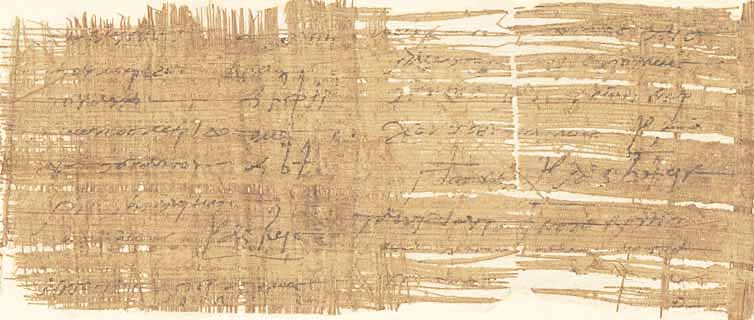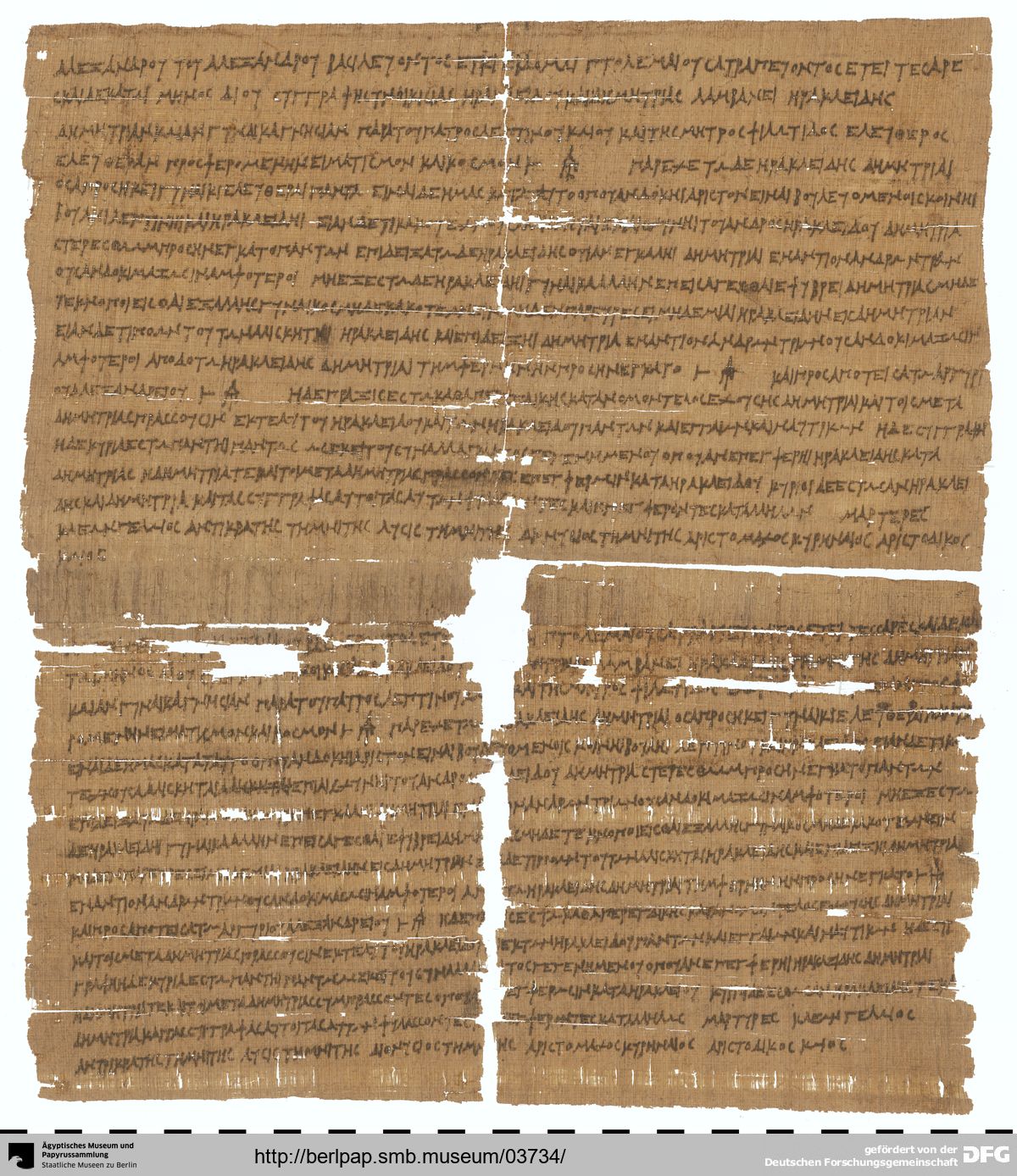P.Eleph. 1 (P. 13500)
This papyrus belongs to one of the most significant findings in the history of papyrology. It came to light during the excavations of Otto Rubensohn on the Nilotic island Elephantine. On February 12, 1906 the archaeologists discovered in the entrance area of a Ptolemaic house a standing jar, which contained a bundle of six papyri including this document, still rolled and sealed. It contains a marriage contract written as a so called “double document”. The contract was written twice on the same sheet. Both parts were then rolled separately, however, only the upper part (scriptura interior) was sealed in order to protect the text against falsification, whereas the lower part (scriptura exterior) remained accessible for checking. In the Ptolemaic era this form served as a security measure to archive documents on private agreements. The contract fixes the details of the marriage between two Greeks living in Elephantine, Herakleides and Demetria. The marital agreements concern for example the dowry, which consists of jewelry and garments in value of 1000 drachmae. Herakleides obligates himself to provide a decorous life standard for Demetria and to make arrangements with her father about their future domicile. Penalties in case of adultery are also fixed. The contract is closed by the signatures of six witnesses. This text is the oldest Greek text with a date (310 BCE), which has been preserved on papyrus.



